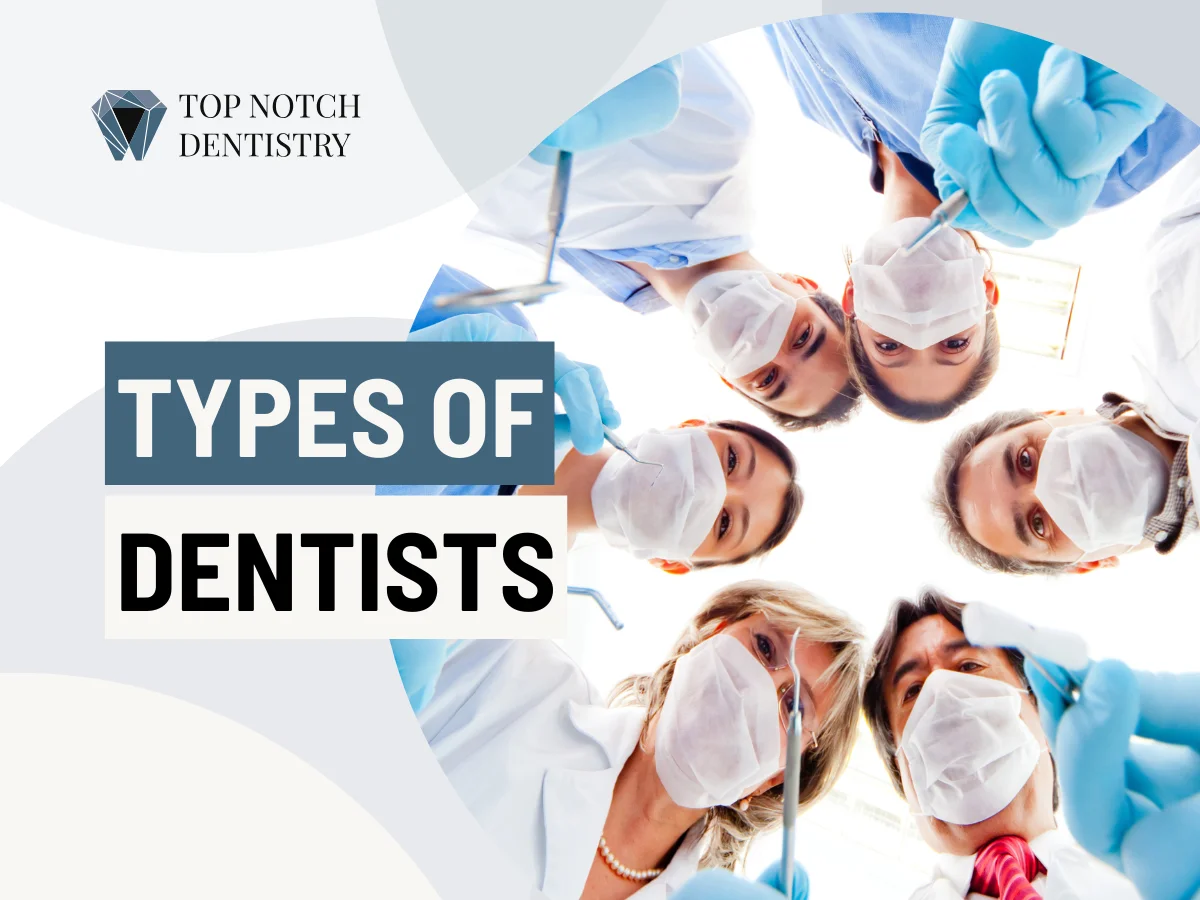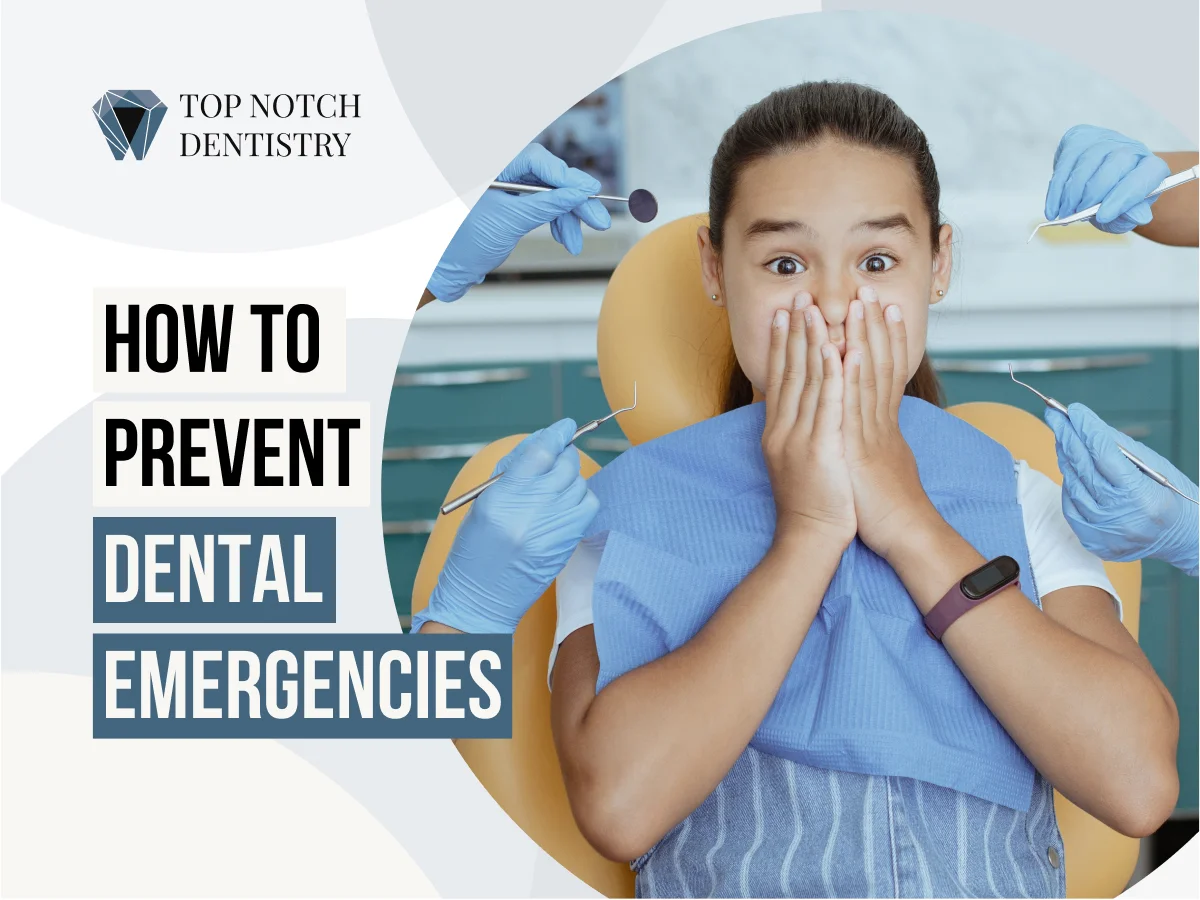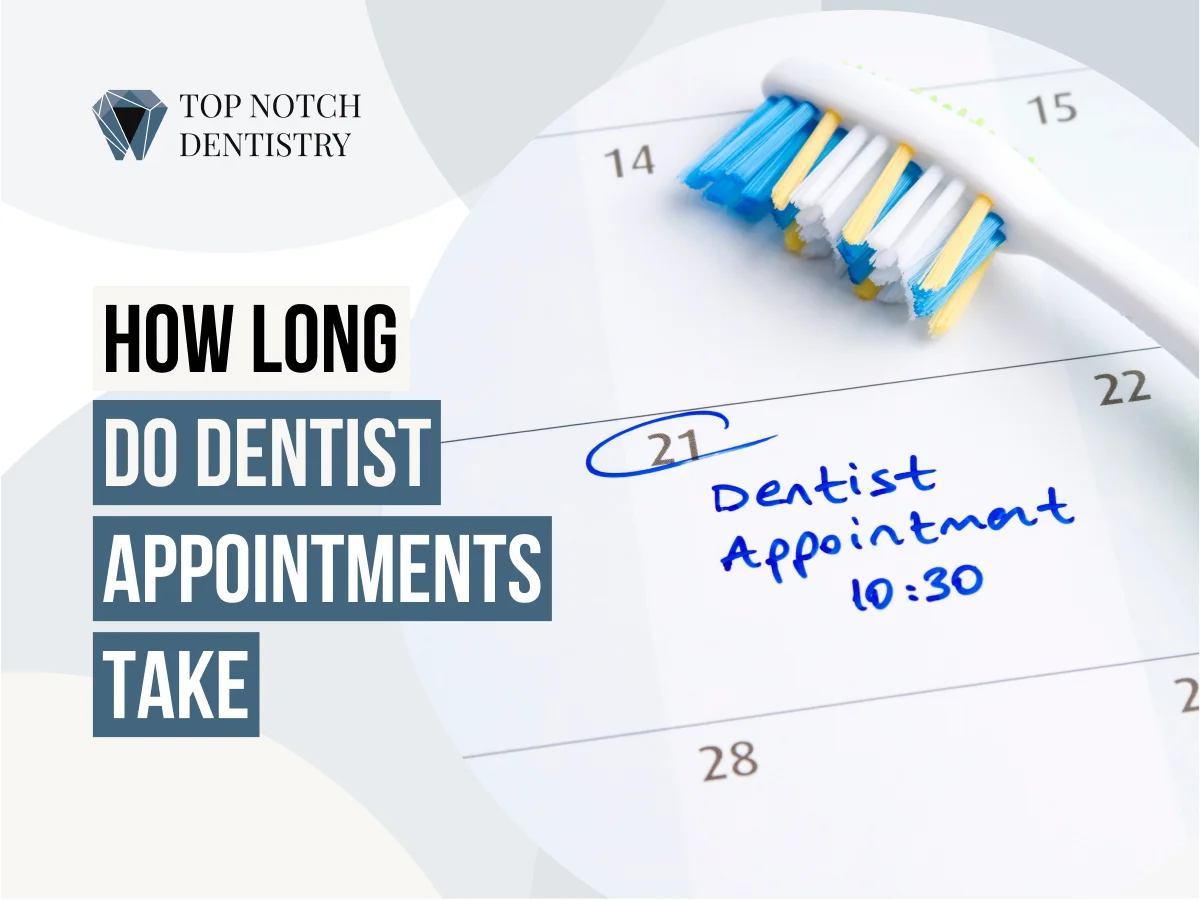
Taking care of your oral health involves more than just regular brushing and flossing—it often requires the expertise of various dental specialists. From treating a simple toothache to enhancing your smile, different types of dentists play specific roles in keeping your teeth and gums healthy.
With so many specialists available, it’s important to understand why choosing the right one can make all the difference in your care. Making an informed choice impacts your treatment outcomes, whether you're dealing with routine cleanings or a more complex issue like dental implants.
Navigating the array of specialists—such as orthodontists, periodontists, and endodontists—can feel daunting. Many people aren’t sure which professional to consult for specific dental concerns, and this uncertainty can lead to unnecessary appointments or delays in getting the right treatment.
This guide will simplify the process, helping you understand the roles of different dental specialists and when to seek their services. By the end, you’ll know exactly who to call for issues like tooth pain, cosmetic improvements, or alignment concerns.
Think of it like this: just as you’d see a cardiologist for heart-related issues rather than a general physician, the same principle applies to dental care. Specialists bring targeted expertise to specific needs, making your path to oral health smoother.
Ready to find the right dentist for your needs? Let’s dive in.
Different Types of Dentists, What They Do, and Their Specialties in Dental Care
There are various types of dentists, each specializing in different areas of oral health. Understanding their unique roles ensures you choose the right dental specialist for your dental needs.
General Dentist (Primary Dental Care)
A general dentist serves as your primary dental care provider, offering a wide range of services to maintain and improve your oral health. They are often the first point of contact for most dental concerns and can guide patients on when to see a different type of dentist if necessary. Focusing on preventive care, diagnosis, and treatment of common dental issues, general dentists are key in promoting long-term oral health habits.
Common Procedures They Perform:
- Routine cleanings
- Fillings, crowns, and bridges
- Preventive care (oral exams, X-rays)
- Basic cosmetic procedures (teeth whitening, bonding)
When to Visit a General Dentist:
You should visit a general dentist regularly, typically every six months, for routine checkups and cleanings. It’s also important to book an appointment with them if you’re experiencing discomfort, tooth decay, or cosmetic concerns such as teeth staining.
Pediatric Dentist (Children's Dentistry)
A pediatric dentist specializes in the oral health of children from infancy through adolescence. With advanced training in child psychology and behavior, they are equipped to handle the unique challenges of children’s dental needs and ensure a stress-free experience. Pediatric dentists focus on making dental visits comfortable for kids while addressing oral health concerns specific to young patients. For example they monitor the development and descent of secondary teeth preventing future issues in adult life.
Common Services:
- Infant oral health exams
- Preventive dental care
- Habit counseling (thumb-sucking, pacifier use)
- Early assessment for orthodontic treatment
Importance of Regular Pediatric Visits for Kids:
Routine visits to a pediatric dentist are essential to monitor the development of children’s teeth and to catch potential issues early. Establishing a relationship with a pediatric dentist can also help facilitate proper oral hygiene habits and make dental care a positive experience for children.
Orthodontist (Braces and Aligners)
An orthodontist specializes in diagnosing and treating issues related to misaligned teeth and jaws. They focus on correcting crooked teeth, overbites, underbites, and crowded teeth to improve the appearance and function of a patient’s smile.
Orthodontists offer a range of procedures, including traditional metal braces, ceramic braces, clear aligners like Invisalign, and retainers to maintain alignment after treatment. Each treatment is tailored to the patient's unique needs to achieve the best possible results.
Beyond aesthetics, orthodontic care is crucial in improving oral function for patients of all ages. By aligning teeth and jaws, orthodontic treatment enhances chewing efficiency, reduces the risk of tooth wear, and prevents long-term issues like jaw pain or difficulty speaking.
Periodontist (Gum Disease Specialist)
A periodontist specializes in preventing, diagnosing and treating gum diseases, such as gingivitis and periodontitis. They focus on maintaining the health of the soft tissues and bones surrounding the teeth, ensuring a strong foundation and preventing tooth loss.
Skilled in treating advanced gum conditions, periodontists provide deep cleanings, known as scaling and root planing, to remove plaque and tartar buildup below the gumline. They also perform gum grafts to restore receding gums and offer dental implants to replace missing teeth.
Healthy gums are vital for overall health, as gum disease has been linked to conditions such as heart disease and diabetes. By managing gum health, periodontists help reduce inflammation and prevent the spread of infection, protecting both oral and systemic well-being.
Endodontist (Root Canal Specialist)
An endodontist specializes in diagnosing and treating issues related to the inside of the tooth, specifically the dental pulp, which contains nerves and blood vessels. They are experts in saving teeth that have been damaged due to infection, decay, or trauma, performing complex procedures to alleviate pain and restore function.
Common Procedures:
- Root canal therapy
- Endodontic surgery (apicoectomy)
- Treating cracked teeth and dental trauma
Why You May Need to See an Endodontist Instead of a General Dentist:
While a general dentist can perform basic root canal procedures, an endodontist is a different type of dentist. They are better equipped to handle complex cases involving severe infection, dental trauma, or retreatment of previous root canals. Their specialized training ensures more precise care, which may be necessary to preserve a tooth that might otherwise be lost.
Oral and Maxillofacial Surgeon
An oral and maxillofacial surgeon specializes in complex surgeries involving the face, mouth, and jaw. They are trained to perform a wide range of procedures that address dental, skeletal, and facial issues, from tooth extractions to reconstructive surgery.
Oral and maxillofacial surgeons handle tooth extractions, particularly for impacted wisdom teeth, and perform jaw surgeries to correct misalignment or repair trauma. They also treat facial injuries, such as fractures or the removal of cysts and tumors, and are experts in placing dental implants for tooth replacement.
These dental specialists undergo extensive education, including a hospital-based residency that allows them to perform surgeries and manage more advanced conditions. This additional training ensures they are proficient in handling complex cases requiring a higher level of expertise than general dentistry.
Prosthodontist (Reconstruction and Replacement)
A prosthodontist specializes in the restoration and replacement of missing or damaged teeth. Focusing on the functional and aesthetic aspects of dentistry, they are experts in designing custom solutions to improve a patient's smile, bite, and oral health.
Common Procedures:
- Dental crowns and bridges
- Dentures (complete and partial)
- Implant-supported restorations
- Cosmetic procedures (smile makeover)
Importance of Oral Rehabilitation for Function and Aesthetics:
Oral rehabilitation performed by a prosthodontist is crucial for restoring proper chewing and speech function, and for enhancing the appearance of a patient’s smile. Replacing missing teeth or repairing damaged ones can improve self-confidence and your overall quality of life.
Oral Pathologist (Disease Detection and Diagnosis)
An oral pathologist specializes in diagnosing and studying diseases that affect the mouth, including oral cancer, autoimmune disorders, and other complex oral health issues. Their primary role is to identify early signs of these conditions, often before symptoms become noticeable to the patient.
Oral pathologists generally focus on performing biopsies and conducting microscopic examinations of oral tissues to detect abnormalities. They also frequently collaborate with other dental specialists and medical professionals to provide comprehensive diagnoses and guide appropriate treatment plans for patients facing serious oral health concerns.
Cosmetic Dentist (Aesthetic Dentistry)
A cosmetic dentist focuses on enhancing the appearance of teeth and improving the overall aesthetics of a patient’s smile. Their primary goal is to boost confidence by addressing cosmetic concerns such as discoloration, misalignment, or gaps in teeth.
Cosmetic dentists offer a variety of procedures, including teeth whitening to brighten discolored teeth, veneers to cover imperfections,and bonding to fix minor chips or gaps. They also provide full smile makeovers to achieve a harmonious, aesthetically pleasing appearance.
As more people prioritize the appearance of their smile, the demand for cosmetic dental procedures has surged. Patients are increasingly seeking treatments to enhance their smiles, driven by the desire for improved self-esteem and the growing influence of media and social trends.
How Do I Know Which Type of Dentist I Need?
Now that we’ve discussed the different types of dental specialists, let’s highlight some common dental concerns and which specialist is best suited to address them:
- Routine Care: A general dentist is your primary provider for regular cleanings, exams, and fillings. If specialized care is needed, they can refer you to the appropriate specialist.
- Pain or Infection: If you’re experiencing severe tooth pain or a deep infection, an endodontist can provide relief through treatments like root canals.
- Cosmetic Concerns: To enhance the appearance of your smile with treatments such as whitening or veneers, a cosmetic dentist is the right choice.
- Alignment Issues: For issues with crooked teeth, an overbite, or aligners like Invisalign, an orthodontist can help correct your smile.
- Surgical Needs: For complex procedures such as wisdom tooth extraction, jaw surgery, or facial injury repair, an oral and maxillofacial surgeon is the specialist to see.
- Gum Health: If you’re dealing with gum disease or need dental implants, a periodontist focuses on these areas.
- Restorative Work: For restoring missing or damaged teeth with crowns, dentures, or implants, a prosthodontist is your go-to specialist.
- Pediatric Dental Care: For children’s dental needs, a pediatric dentist is trained to work with young patients.
- Oral Health Diagnosis: If you have unusual symptoms or oral lesions, an oral pathologist can help diagnose underlying conditions.
Still unsure? Your general dentist can assess your situation, explain the different types of dental specialists, and point you in the right direction for specialized care.
Meet Our Dentists in Richarson, TX
At Top Notch Dentistry of Dallas, our skilled team of dentists is dedicated to offering compassionate, comprehensive care to meet all your oral health needs. From routine checkups to different types of dental specialties, we provide personalized service in a welcoming environment, helping you achieve the smile you deserve.
Whether you're looking for a family dentist or a specialist, we’ve got you covered. Contact Top Notch Dentistry today to schedule your appointment and experience top-quality dental care!


